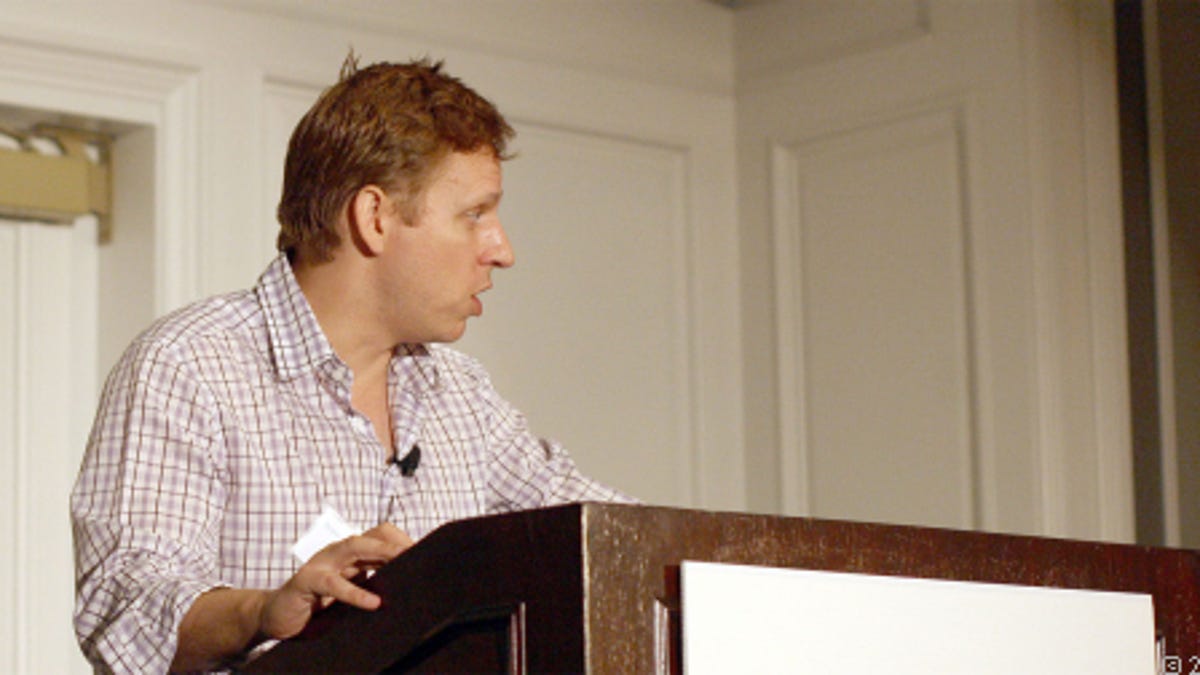Peter Thiel floats cash to floating tech incubator
Famed tech investor Peter Thiel is now helping to launch a commercial "seastead" 12 miles off the California coast.

Famed Silicon Valley investor and entrepreneur Peter Thiel is helping to launch a floating technology incubator 12 miles off the coast of Northern California.
Blueseed, which is planning an offshore "seastead" for foreign entrepreneurs who have difficulty obtaining visas to live or work in the U.S., said this evening that that Thiel has agreed to lead the company's initial financing round.
"We're all totally psyched," Blueseed CEO and cofounder Max Marty told CNET. It's "hard to imagine this was just an idea some months ago." (See CNET's profile of Blueseed.)
This isn't the first time that Thiel, a self-described libertarian who also founded a hedge fund and created the philanthropic Thiel Foundation, has been active in supporting seasteading. He's donated more than half a million dollars to the Seasteading Institute, which has a mission of colonizing the world's oceans.
In an interview with CNET in September, Thiel likened starting a seastead to founding a company:
What attracted me to seasteading is, it's linked to the technology question. We have this question about: Where in the world can one do new things? There's a technological version of that, and there's also a "Where can we build new communities and new societies?"...
The reason the seasteading question's been so interesting is that a lot of people do think that we can do much better as a society. And if you run the thought experiment, could we be doing things better in our society, people may disagree on the particulars, but an awful lot of people think things can be done dramatically better...
In a large existing company there are set ways things have happened. Sometimes there's a sclerotic bureaucracy that's taken things over. You can change things at the margins, but you often cannot change the fundamental fabric. The reason people start new companies is because there's a need to have a certain amount of freedom to explore doing new things. That's why you'd start a new business. There's a question: If you can start a new business, why can you not start a new country?
Blueseed isn't quite that ambitious. The founders plans to register their seastead--which could be a cruise ship or an oceanworthy barge--in a country with a reputable legal system, such as the Bahamas or the Marshall Islands. That nation's laws would apply, and they also plan to voluntarily follow U.S. public policy on topics like illegal drugs.
Their eventual goal is to attract up to 1,000 entrepreneurs who want to live a short ferry's ride away from Silicon Valley, with its unsurpassed network of tech investors, law firms, suppliers, and social opportunities. They hope to raise $500,000 in the next half year and then try to secure between $10 million and $30 million to charter or purchase a suitable vessel.
It's an ambitious project with an untested business model that also amounts to a clever legal hack: Programmers relocating to Blueseed's maritime hub could bypass U.S. immigration entirely by taking chartered ferries from Mexico or Canada, or enter the U.S. on a business or temporary visa. Blueseed hopes to run regular ferries from Half Moon Bay, about half an hour's drive from Silicon Valley.
Update as of Wednesday evening: Peter Thiel replied in an e-mail message saying: "I think people should never underestimate how far we (as a country) are from any sort of rational equilibrium or reasonable policies -- and therefore we also should not underestimate how there may be some opportunities for initiatives such as Blueseed, regardless of how strange they may appear on the surface."

